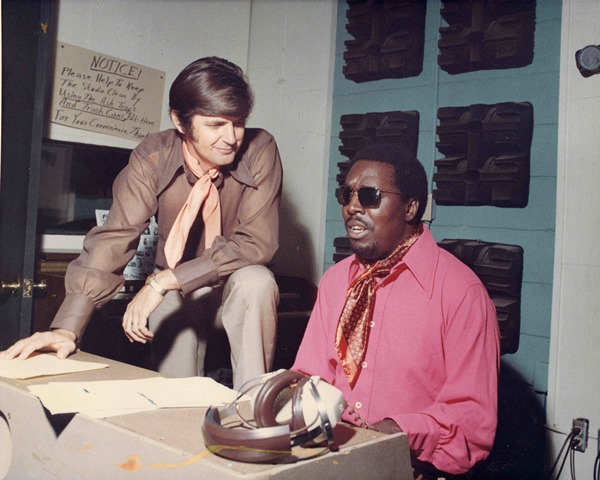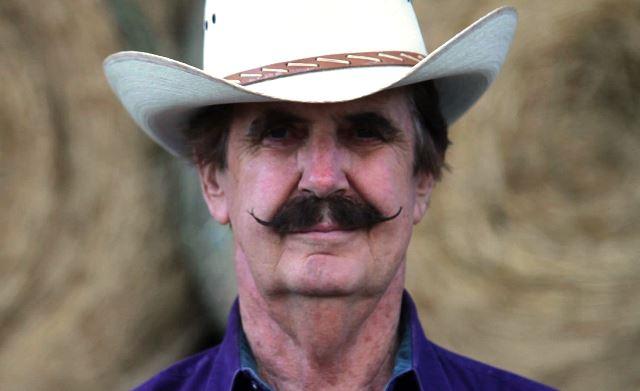“We grew up like animals,” says FAME Studios’ founder Rick Hall of his upbringing. “That made me better… I wanted to be somebody.” He did become somebody, and in the process put Alabama’s Muscle Shoals on the map. This film tells the story of how a small city birthed some of the greatest American music of the 20th century, and of the ripples which subsequently spread. The Rolling Stones recorded there in 1969. Five years earlier they had released their version of Arthur Alexander’s “You Better Move On”. Hall was behind the original, his first production.
Tucked just inside the north-west corner of Alabama, Muscle Shoals became an unlikely musical hub. The state resisted integration and, into the mid-Sixties, openly espoused racial segregation despite acts passed by government and pressure from the Civil Rights movement. In this vortex, the visionary Hall opened and ran a studio which produced records like Wilson Pickett’s “Land of a Thousand Dances", the definitive, vital interpretation of this soul stomper. Pickett was black, but the band heard on the single was white. It was the same with Percy Sledge’s “When a Man Loves a Woman”. The sound mixed black with white, and country with soul. Hall did not respect boundaries. He was also a hitmaker.
 The documentary is stuffed with eloquent testimony from those who were there and those swept along by Hall’s zeal. But it’s a pity the first voice heard and the first face seen belong to Bono, who crops up repeatedly offering trite and increasingly irritating faux-profundities. “We wanted some of that sound,” he offers. Really? (Pictured right, Rick Hall and Clarence Carter at FAME Studios)
The documentary is stuffed with eloquent testimony from those who were there and those swept along by Hall’s zeal. But it’s a pity the first voice heard and the first face seen belong to Bono, who crops up repeatedly offering trite and increasingly irritating faux-profundities. “We wanted some of that sound,” he offers. Really? (Pictured right, Rick Hall and Clarence Carter at FAME Studios)
Although chronological, Muscle Shoals takes detours to look back at Hall’s life and the tragedies blighting it which have shaped his personality. Cutting a dashing figure in his fine moustache, he has a carefully crafted good-ol’-boy persona. Conflict and separation define his path. Hall’s first band also featured Billy Sherill, who upped and offed north to Nashville to invent the smoothed-out, pop-infused “countypolitan” sound. Bust-ups with Aretha Franklin, Etta James and Wilson Pickett are recalled: James had “temper like a lioness”, but the most significant falling out was with Atlantic Records’ Jerry Wexler, who stopped sending the label’s artists to Muscle Shoals after Hall took matters with Franklin into his own hands. Hall is characteristically insouciant about the rift.
 The biggest rift was between Hall and his musicians – dubbed The Swampers. These phenomenally tight, incredibly talented studio players left him in 1969 to set up Muscle Shoals Sound, their own studio where The Stones and many other visitors recorded (sessions there by British punk band The Lurkers are quietly forgotten). They suffered their own loss when Lynryd Skynryd, a band they had sponsored, went off on their own after they didn’t initially find success. (Pictured left, Aretha Franklin in Muscle Shoals)
The biggest rift was between Hall and his musicians – dubbed The Swampers. These phenomenally tight, incredibly talented studio players left him in 1969 to set up Muscle Shoals Sound, their own studio where The Stones and many other visitors recorded (sessions there by British punk band The Lurkers are quietly forgotten). They suffered their own loss when Lynryd Skynryd, a band they had sponsored, went off on their own after they didn’t initially find success. (Pictured left, Aretha Franklin in Muscle Shoals)
The maelstrom surrounding Hall had also, as the film states, created southern rock. Duane Allman's guitar solo on an off-the-cuff Pickett version of The Beatles’ “Hey Jude” would lead to formation of The Allman Brothers Band.
Muscle Shoals is fascinating but isn’t riveting, and it's overlong. Securing Mick Jagger and Keith Richards's input is amazing, and Aretha Franklin and Wilson Pickett’s contributions are absorbing, but there are too many talking heads. There are also a wearying number of lingering shots of the wider environment and not enough archive performance footage. A mystical link between the music and the properties ascribed to the Tennessee River by Native Americans – “the singing river” – is overplayed at the expense of digging into what really brought all this incredible music to this place. Strictly speaking and despite what is shown on screen, The Muscle Shoals Sound Studio was actually in neighbouring Sheffield, not Muscle Shoals itself. These drawbacks – and Bono – aside, however, Muscle Shoals is essential.
Overleaf: Watch the trailer for Muscle Shoals













Add comment